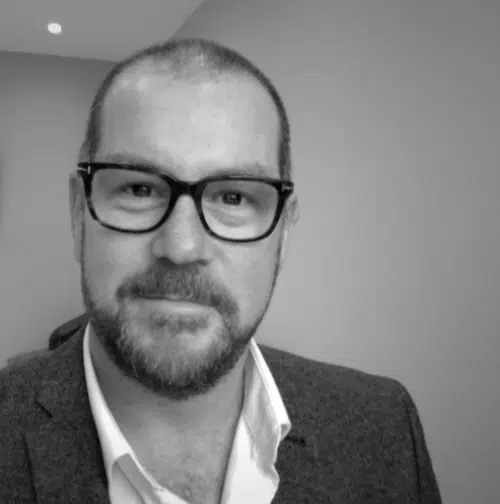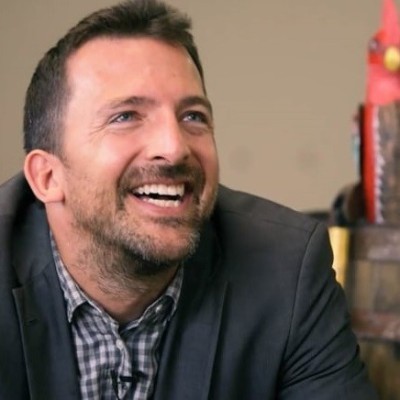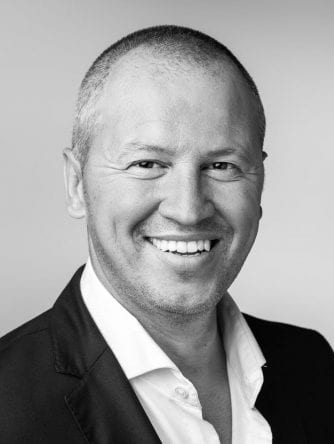0
How can small businesses compete with established market players and win?

In my experience, the best small businesses use their natural agility to out-serve and out-manoeuvre larger more stable and more structured competitors. This requires an obsession with understanding what customers truly want and value. This of course is constantly changing as the world around customers changes. Large well-staffed incumbents often assume that what worked in the past and “the way we do things around here” will continue to work in the future. Challenging this is what enables small disruptors to create an exciting new normal. New businesses that maintain this obsession and constantly look for customer problems to solve, will in my experience find opportunities that others miss or are too slow to grab. Having the confidence to then invest in their growth ensures this is sustainable. However, as they grow and need to add new people and build their own processes and disciplines, the challenge is to ensure they don’t become the bureaucratic, “stuck in their ways” incumbents themselves and free the path for further new entrants. This requires them to be careful in hiring people with similar values and work ethics to the founding team and thinking hard about getting the right balance between structure and control to support a scaling business less able to co-ordinate informally, and flexibility/freedom to do the right thing to ensure ongoing agility.

It’s not enough to just be good at what you do. I learnt that the hard way. Despite being talented and skilled in my chosen field I just couldn’t get ahead. The key is to develop your personal brand, put yourself out there and use social media video and imagery to let people know what makes you tick, talk about what you are passionate about and what you are capable of making happen. Connect with like-minded individuals and with organisations whose values align with yours. Back it up with awesome work and relentless dedication to your craft and you have a recipe for domination.

Easy. Well, easy in principle, but in practice, terrifying (for me, anyway). Smaller businesses can add way more value. Period. Agility (married with experience) means that talented teams can compete with bloated organisations on every single level:
- Speed of delivery: on (or ahead of) time – no middle management blockers to be seen
- Quality of work: the client is SO important to the small business, and is likely less so for the established players – the effort will shine through
- Breadth of team: the client might be used to dealing with one person with the established player. They might get 4-5 experts with a small biz

Find niches within your industry and exploit those niches. Well trodden paths will need more capital, cash flow, expertise and data to become established in, which makes the barrier to entry higher. There are always areas of any industry where you can find unexploited opportunities and grow your business into the centre ground from the niche sidelines.

I think a lot of small businesses try and come up with USP’s that differentiate themselves from established players and this often goes wrong as ultimately you are offering the same service as them – so my advice is to focus on people as people buy people. Most of our clients could get the same technical service from us cheaper elsewhere and it would be the same, but they like working with us as people and there’s a lot to be said for that. I’d also say 90%+ of our clients have been referrals from other clients or past colleagues, so again focus on selling the people in the business and how good you are to work with, rather than trying to make up unrealistic service USPs.

Here’s what’s worked really well for Sharper in taking on the bigger boys and winning:
– New ideas, always. We operate in a pretty dull space (B2B Tech) but that means it’s ripe for injecting some creativity into things and rocking the boat a little. We always lead with creative and take things in different, inventive, innovative (but still relevant) directions.
– Don’t wait to be asked. We make a “positive nuisance” of ourselves to clients pitching in ideas without waiting for briefs to come our way. Clients are time-poor and overloaded with decisions. If you can go to them with great ideas that short-cut the whole process for them you’re on the front foot.
– Obsess over your target audience. You’ve got to know who is buying or will buy from you inside out. People buy from people, so if you can understand exactly what your target buyer is thinking and feeling you put yourself ahead. If you know more about your audience than anyone and put that knowledge to good use you’ll win.
– (Bit more dull, but vitally important). Keep “back office” stuff in the back office. Finance, IT, HR, Legal, all those types of things. They eat up time and energy – especially if you don’t really know what you’re doing. So as soon as you can, get someone else to do it for you so you can then focus on what you need to instead. We’re very fortunate to be part of the Selbey Anderson group who took all this off our hands from day one.

Small businesses need to use their authenticity to really stand out. Social selling – organically sharing content – is a big part of how we’ve built a community around our brand and helped others to learn successful affiliate marketing strategies. Bootstrap your knowledge, your resources and create content that sells you and your service. Use your network to push your content further and use your teams to be your biggest brand ambassadors. People buy people – your customers want to like and trust you before deciding where to spend their money.
Spending time to build your business brand and investing in strong social media and lead-generation tactics is a surefire way to begin organically marketing of your business and generating incoming sales. Use your size (being small and agile) to your advantage. Remember bigger businesses may have more hoops to get through before taking an idea to market, so think about how you can add value and be first to gain a competitive advantage. Perseverance is key and remember to appreciate the small wins along the way.

In my opinion, small businesses care and provide niche solutions and services that are agile and can adapt over time which in our case provides better protection for companies and our clients.
I would like to call out two quotes which have guided me and my business in different instances
1) “Everyone has a plan until they get punched in the mouth” – Mike Tyson
This quote is especially true in the Cyber Security industry – we think we have a plan until we get hacked.
2) “Insanity is doing the same thing over and over and expecting different results.” – Albert Einstein
In business you have to adapt as the world is changing and you have to evolve or die – it’s natural evolution.

Service and personality!
Often the established market players get too big to care. As a small business, you have to give impeccable customer service and I mean impeccable. That means responding fast to customer inquiries and complaints, use the phone and actually have a conversation, be flexible and accommodating. Make sure you are easy to contact, your website has your phone number, email address and where possible a chat function. Treat customers as individuals and make them feel good!

Small businesses can compete via innovation and nimble delivery of services and products, using technology such as AI to level out the playing field.
When applicable, a closer and personal relationship with customers can also lead to competitive advantages, as the ongoing dialogue is something that provides valuable feedback, improvement tips and is difficult for larger businesses with less invested employees to achieve.
Avoiding competition that requires economies of scale while focusing on quality of service and value added has always worked in all my past startups.

The challenges for small businesses are significant, less resources, capital and manpower but there continue to be opportunities for smaller businesses to succeed despite these challenges.
If you don’t want to read my waffle, three examples are:
- Speed of decision making
- Taking advantage of new trends that are disrupting an industry
- Marketing free of corporate fear
Speed of decision making:
Smaller businesses can make decisions quickly, they are free from the bureaucracy of larger businesses that often get bogged down in internal politics and protracted decision making. As a small business owner, I am free to make a decision and start implementing today. I can spot an opportunity and move faster than my larger competitors.
Lesson: To maximise our advantage it is important to make bold decisions and be willing to take risks. But fail fast and don’t bet the house on any idea until you have data that supports it.
Taking advantage of new trends:
Every dominant player at some stage loses their magic, the very thing that helped them get to their market position. It is incredibly difficult for an incumbent dominant player to embrace disruption, so often it is the new start-up free from the shackles of existing revenues and processes that can become a leader in a new technology or trend. Example https://www.makerpad.co/ set up by Ben Tossell, a resource for companies who were looking to embrace no-code tools. No code is a growing movement that empowers companies that are looking for low-cost technology solutions to power their business or create SAAS products without needing expensive development resources. Ben created a guide to the best no-code solutions and use cases and tutorials that captured the imagination. Makerpad was launched in 2019 and was acquired by Zapier in 2021.
Lesson: Spot a growing movement and empower that community with a great product
Marketing free of corporate fear:
The final advantage I would say is being able to communicate your ideas in a fear free way. I found corporates are often hampered by the fear of putting a foot wrong, of offending someone, or upsetting the leadership team in an off-brand communication. This can be like operating with a straight jacket on, removing all personality and becoming tame and less relatable as a result.
Lesson: Communicate your message in a way that resonates with your audience, and don’t overthink it, or you will suffer with post paralysis.

Once upon a time every business started! From Alphabet to Apple, from Rolls Royce to BMW all founders were EXPERTS in their chosen fields.
Through natural ability, think Bill Gates and Paul Allen, or using a specific skill and deep diving into an industry, think Richard Reed, Adam Balon and Jon Wright of Innocent Drinks, almost all successful minnows that successfully compete with established players are experts.
How do they do it?
With PASSION. Business is a passion. Many things will fall by the wayside to give the world what you believe in.
Many of the start-ups and larger companies that we have worked with are led by individuals with passion for what they do.
How can they do it?
With AGILITY and FOCUS. Agility to respond to what the market wants and focus on the product or service and customer needs.

It’s always good to see hardworking, passionate and innovative ideas and strategies breaking through traditional business barriers. However, one must be aware of the future predictions of their respective industry and the upcoming opportunities. Whilst keeping the big sharks in mind, the best way to compete and grow in the pond is to be innovative and creative and always think outside of the box.
If your business or service is different or has some unique or improved methodology, it’s not that hard to get footfall into the business. Established market players will always try to capture the crowd, but younger audiences are becoming more active and won’t always just go with big brands. If a small business or startup is offering ethical services or products in a way that touches the heart of their client, consumer or customer, that’s all you need. Before any business launches, one must fully understand how you can get the kick and spark to get your product/ service from your client. That psychological scrutiny is important in order to compete with larger businesses and capture the mass into your own business.
It takes time, but hard work and smart play are always rewarded with success. I personally believe that competition is an important part of the industry, the feeling of work, gain, growth and success has to be there in the surrounding. Competition always helps an individual from personal life to professional life. Being different, smart, working hard, being innovative and creative will allow you to compete with more established businesses and gain success.

There will be a million and one truisms about small business ability to compete with established market players, but the most important is agility. Often framed in product development, it’s as true across operations – especially HR. Our agility has enabled us to continually hone our talent offer, which has helped us to recruit and retain people unattainable to more established businesses. In fact, many of our team have proactively decided to leave the larger and slower market players to join a reasonably small but focused start up. Similarly in product development, we’ve responded to client briefs and used these to pivot to more relevant propositions to roll out. Some of our biggest clients have effectively been collaborators in product design.

The key to being able to compete and win business is reputation, knowledge and integrity. This opens doors at all levels of business and give you the confidence to knock on them in the first place. Only you can build your own and your companies reputation which means hard work and standing on the deals you do especially if the terms of the deal change…even if that means you may have to concede margin. Knowledge is power in business…know the industry you are in, inside out, network with the trade associations, and read the trade magazines but most of all know your products and how they will enhance your customers business. Integrity….I often say some of the best deals I have done I walked away from….so don’t over promise and under deliver…Your customers will always appreciate honesty.

The key is being agile in responding to requests and demonstrating flexibility throughout the sales and delivery process and delivering right first time whilst communicating effectively throughout the process and demonstrating that you can be trusted. As an SME, we can provide a tailored approach, a key advantage against larger hierarchical businesses, which are rigid. Purchasers have too many tasks to do; if you deliver the above, price, although important, becomes only one factor. More importantly, you will be a trusted partner, a go-to company.

Find a technical or market niche and dig deep. Established players need a bigger slice of the pie than you do to begin with, so my advice is to try to spot a gap in the market and excel in that position – even if it is relatively small to start with. You can grow outwards from there. And remember, it is not always about winning ‘against’ established players, but also ‘with’ them (and sometimes ‘despite’ them).

As a small business, to compete with established or larger market players and win, you need to offer something unique that you feel sets you apart from the rest. One small detail can make a massive difference. The way to do this is through researching your target market and getting to know what they really need and what would benefit their business before trying to sell them anything. The other thing that will set you apart is to offer consistent and exceptional customer care. A lot of larger companies really don’t offer this or because there are a lot of employees it can be hit-and-miss. Making your customer feel heard and like the most important customer in the world and knowing their business inside out will really set you apart.

One of the best pieces of advice I was given and then put into practice was to find ways to trust the people you put in place to do a good job. This frees up your time to develop the business without being tied to micro-managing every aspect. One of the easiest ways to do this is to bring into the recruitment process a desire to look for and hire people who will be able to do the role better than you would. In senior roles, this is easier but even in more junior roles seek out the skills you don’t have. Also honesty and kindness, always be honest and always be kind.

As a small company you can adapt to emerging customer needs much faster than more established larger competitors. If you listen to customers carefully and can quickly ship quality products that solve their problems, you can win.

David and Goliath, was he lucky or destined to win? (Let’s park the biblical angle for a moment). On the face of it, he shouldn’t have obtained a victory, but look a little closer and ponder over the agility of the underdog – his light-footedness, without the overbearing armour slowing every move of the behemoth before him. This is directly akin to the established enterprise in battle with the younger, smaller challenger. Actually, let me rephrase that – often the enterprise doesn’t even see or feel the threat until it’s too late. Their confident position becomes arrogant, mediocrity sets in, while the challenger is grafting every hour, with focus and passion. It’s the underdog that’s competing with the incumbent… singularly focused, all to play for… obsessive – traits rarely found in larger organisations.
My advice to the small business? It’s the same for any business – have crystal clear clarity with regard to what you’re offering and to whom. Research the market, understand how to be more compelling. Find your audience and the way to reach it. Ensure you have a business model that makes economic sense. It doesn’t have to be innovative, just better than the alternatives. And ideally, make sure you’re solving a problem – a ‘solution’ looking for a problem is hard work. And when you’ve got your business model right, never forget – you’re nothing without the right talent. The greedy man gets nothing – share the success around a little, build a team that’s highly motivated to climb the mountain with you. And be lucky – everyone needs a good dose of luck. Those who deny that good fortune played a material part in their success… they just haven’t grown up yet.

Entrepreneurs leading small businesses have a natural “je ne sais quoi” which bootstraps them to great heights. It’s this distinction of understanding, almost an empathy and act of collusion with our customers that makes them trust us over the factory stamp of our much larger competitors. We don’t always say the right things or drink the cool-aid, we shoot from the hip, and sometimes it lands well. In my experience, this is coupled with our ability to move at the speed of thought as opposed to many larger businesses that need to traverse the layers of an onion to get a pitch out, waste weeks to get the right people on the call and then make plans for their A-team to be on site for the first few weeks, who are generally small in numbers takes weeks or months to turn around. Small businesses need to be nimble and quick and grab opportunities as they come in. Be a cheetah, not a woolly mammoth!

Understand what you are good at and could be great at, then focus on improving daily.
Know where that unique skill or offering solution best fits.
Find the sector niche you can apply it to.
Laser focus on getting to know the prospects and clients in that sector 8 touch marketing campaign to each of them with rigorous follow through.
Become the expert in your field while listening and learning about what they want/need next, then go about overachieving.
Work hard to become a trusted consultative partner, this takes time, hard work and total focus, but it works.
Learn the language of the clients, know their business inside out, sponsor their meetings, attend their dinner awards, and become part of the team.
Keep developing new ways to add value, understand the lifetime value of each client and the resources required to develop them.
Enjoy the sector you have chosen or move on, you must have fun while helping others.
Do all of these things and I guarantee you will beat the so called big boys and become the go to choice in your sector.

Being agile and customer-centric is definitely key. And those initial case studies and references (securing these might mean offering services at a discount or even for free initially) can go a long way when it comes to establishing credibility in the market or providing that next potential customer confidence in your ability to deliver.

Put the right people on the bus and let them move into the parts of the business that best suits them. I strongly believe that the skill mix is key and having a broad spectrum of abilities that work well together is far better than a raft of the youngest and brightest.

The one thing I wish I had known 15 years ago? I always used to hire 3 people at £35k/yr each I finally hired one guy at £100k/yr – and he is worth more than the other 3 put together. He is with us 8 years later and our profitability has been transformed – and my quality of life is much improved – not least because he is good at the stuff I am rubbish at. I never had the courage to do that before.

Aim for fame. You can’t outgun them, so don’t even try. Don’t bring a knife to a gun fight. Don’t believe it’s about marketing hacks either, or everyone would do them. Where do you win? Speed, risktaking, collaboration, active leadership, consistent authenticity – all these things Big Co is bad at. So find places where these matter. Big story in the press? Jump on it before Big Co has even been briefed. Controversial topic you care about? Say something heartfelt – Big Co can’t. Found an amazing talent? Drive to meet them in person and offer them the job on the spot. Big Co won’t. But before you do any of these things – make sure you define your values – and LIVE THEM CONSISTENTLY – this is the last super-power Big Co doesn’t have. And have fun. Another thing Big Co only remembers from when they were you.

Be it a start-up or a large enterprise, at its core every organisation must have clarity and purpose. This clarity is not static, it is a continuous adjustment by looking into external and internal ecosystems. Every start-up, who intends to differentiate themselves, needs to continuously to focus on having a clarity and purpose. To define this, you must look at what exactly you are trying to do, what problem you are solving, how you are going to do this and how ultimately you enable those values.

Never let your bookkeeping get behind, no matter how busy you are or how bad your business problems are. Your books contain the answers you need to make decisions. Being without accurate bookkeeping is like being lost without a map.

Each and every business/idea starts with an idea that if you believe in will succeed. You don’t have to be big in order to succeed, as confidence and drive will be your key to success. Believe in yourself.

The only way to find out what established market players do wrong is by talking to their customers. The target audience knows best what is missing and how to improve their lives. Then the formula for success is simple. Build a product or service customers want and need and give your customers extra care and attention. Internal politics and long decision-making journeys swamp prominent players. Small businesses know how to stay close to their audience to serve them best.

Starting a brand in a market with established players is hard, no question. However, big players are slow to move and often have lots of users who feel ignored on the edges of their product who are easy to appeal to. Our focus is on quickly building out product journeys and use cases for these people.
When marketing to these users, don’t compete where you can’t! PPC Advertising is a great example of this. If you have a player spending £10,000s every month on PPC, don’t try and compete, because you will burn through so much cash before you get going. Instead, go after another channel – we use SEO / organic marketing which in turn drives strong word of mouth and referral. It might be a bit of a slower start, but over time it makes out with more sustainable and repeatable funnel growth and by the time the ‘big guys’ feel you digging at their heels, you have an unstoppable, repeatable acquisition engine.

You need to find a niche that resonates and stick to it. Competing with the big brands can be difficult if you don’t have the traction and team and it can also be deflating. Focus on your clients and work on building strong repeat business. Word of mouth will be your best marketing tool. We used to spend thousands on Facebook and Google and then realised investing in SEO and organic traffic was a far better use of our time and resources.

At the end of the day it all comes down to access to capital. Small businesses should roll out following lean principles and really focus on the key value they can add then prove out that value with an initial MVP. From there, drive significant volume in deals (or one or two large profile big deals per product market fit).
Typically, this can take in the region of hundreds of thousands to drive from personal connections as you build up your network and reputation. From here, you need external access to capital – it’s time to go for seed rounds. Try to raise a few million and start scaling – with an emphasis on great focus. Use your size, your nimbleness, as an advantage – the idea is not to try and redo what big companies are doing, but rather, extend and improve upon their existing offering in a way that is hard for them to do as quickly. That’s how you will gain market share.

A tricky question because there’s no straight forward answer. Submit a proposal that’s half the price expecting the Client to chose you for the savings? Not likely because that day the Client will be demanding a big name in the business. Put in a price that lets you get in extra weight for the job and they will want to compare to previous track record. But of course its about more than money.
First you have to understand the approach you should make by working out what they want, as well as what they need, always bearing in mind these two things don’t always go hand in hand. Show clarity and insightfulness with your pitch. Engage with them confidently but not so much you seem too bullish. And give away enough to get them excited but not so much they flip your ideas on to the old hands who they know can deliver a good job.

Be honest about what you do – and don’t do – and don’t be afraid to say no. You can waste so much time, effort and energy pretending to do things that aren’t in your skillset. We’ve found our clients always respect honesty.
Early on, we were invited to tender for a huge pitch on an amazing potential client, but 60% of it was not our capability and would have required huge outsourcing and complexity. We made the incredibly hard decision to say no, but explained why and where our expertise lay. Two weeks later we were rewarded with a project almost as large, but that was non-competitive as they saw it as our niche and expertise.

Simple. Play to your strengths as a small business. You can be more agile, bold, creative, limitless and passionate. You control the narrative as a small business leader and that’s incredibly exciting.
The key is to be bold, be brave and be you.

There’s never been a better time in history to be a small business. Some of us remember a time when you had to persuade (pay) a store to carry your new product. Now you can go direct to market, using social media to convey the authenticity and passion that only startups and founder-led companies have. The classic DTC success story typically involves a singular reinvention in a tired category, laser-sharp focus on customer experience (CX is the brand), co-creation with the customer, a fresh BS-free tone of voice, a compelling founder story (often from outside the industry) and of course, omnichannel delivery. Oh, and the best user of data wins.

Help your prospective clients understand how you differentiate yourself from the big players and what are the additional needs your product/solution addresses.
Them being bigger doesn’t always mean they provide the best service or customer communication. Leverage these areas where you can be stronger and show them that you can gain some of their market share!

The quality of your staff will determine your success.

It’s very tempting to try and compete with the big players, but my advise is don’t. Be yourself and aim to be the best at what you do. Be human, with all your less than perfect bits. The most rewarding clients will warm to realness, and reject corporate ‘perfection’. Big shiny agencies will always attract big shiny clients, but the best clients seek out difference and agencies with a genuine passion for what you do. Don’t chase money, reward will follow if you focus on your client and their work.

The advice I would give is that with my initial marketing effort I should have gone deep not wide. I spent a fortune trying to reach as many people as possible countrywide, and I think I should have started in my own region by establishing strong relationships and building up a great reputation.
I would also say keep your offering simple, accessible and affordable. Understand properly the difference between marketing and sales. It is great to do lovely talks, e-mails and adverts, but you must have a ‘closer’ on your team who is not afraid to sell.
Finally, do not get distracted by other people’s projects – you can do that when you are strong and established!

Small businesses can compete with bigger players by staying nimble. Quick decision making and a flat structure mean that not only can decisions get passed quickly but you can pick up an insight in the morning and have it implemented by the evening without having to go through layers of approval. This suits energetic teams and you can go on to attract some great talent this way because their opinions and insight truly matters.
On a customer side, there are many people who wish to put their money with a smaller player because they know they matter more to them. Customer service is at the heart of our business because customers aren’t numbers. We appreciate each and every order we receive and that translates into each email we write, each phone call we answer, the way we interact with our customers at every level. If you’re a small player you need to hone in on ways to make each customer feel special. This will help you win in crowded industries.

I absolutely believe that small businesses can compete with leading market players and win! With a brief to grow the business ten-fold within three years, I introduced a disruptive B2B2C business model. My philosophy has always been to grow a business from the bottom up. We have attracted the very best talent and invested heavily in their training and development to ensure Vivup is the market leading employee benefits provider.
To me, nothing matters more than a happy workplace. I believe that’s what makes us experts in creating them. By continuing to push the boundaries, we transformed our products and services, worked hard with our partners and ensured that the solutions we offered are best in class. My one piece of advice that I wish I had 15 years ago is – just be yourself, don’t feel pressure to change to fit those around you or to make other people feel more comfortable. Being respected is more important that being liked and no matter what you do you can’t be liked by everyone but if you are true to yourself, you can be respected by everyone.

Where to start? By all means you must prepare, but don’t put off starting your entrepreneurial journey expecting that everything will be in place, because it won’t. If it is, you will have delayed your venture.
Get help – don’t be the one doing everything including your accounts and taxes – use your talents and precious time on what brings business and hire someone else to support you – even a part-timer will help.
There is only ever too much or too little to do; if you feel you have enough business you’re probably about to run out.

If you want to win in an established market then as an Entrepreneur my advice is don’t play their game, change it. By playing the same game you will most likely not win. Be it addressing a specific customer niche or disrupting the value chain or going after different market needs. As an example during a downturn when most customers are not ready to spend a lot, maybe you can offer a service that focuses on saving costs. Examples: Nokia vs iPhone; Xerox vs. Canon; Car Industry Vs. Tesla.

Establish your company goals and ethics, once this is determined spread that message online and represent it in every business relationship you encounter, especially paying attention to how you offer different things to another company.
Omni-presence!!! Make sure you’re seen here, here, here, and over there!! Not everything will go your way, don’t view mishaps as obstacles or failures, view these mishaps as guidance towards the right path. Everything which goes wrong ultimately pushes you closer to where you need to be. Persistence beats resistance!!
Other than that, smile and enjoy the ride!

Big business is about systematising operations, whereas small business is about people, so to survive and thrive as a small business personal service and relationship building is key. What can you do that big business cannot? It won’t be quantity, so it has to be quality. And it’s not necessarily about doing the same service for a lower price, as in our experience, big business can sometimes be cheaper on certain things due to economies of scale, or willingness/ability to take on loss-leading instructions. Small business is necessarily more entrepreneurial, as you have to fight for every opportunity. On the plus side, that is often attractive to employees, so use that as a positive when recruiting. Meeting a founder, buying into their vision, feeling loved and part of the team is very hard for a corporate HR team to replicate, as the leaders of big business are often a long way from the coal face.

In my humble experience, small businesses are more than capable of taking on established market players as they tend to be more agile, forward thinking and better at engaging with their end customer than larger corporations. That’s a big statement from the Founder of a SME to make but smaller businesses tend to innovate better, go to market more cost effectively and provided the Founding Team are persistent enough more determined to succeed than their larger peers. Dream, Plan, Work Hard, Do Not Give Up, Be Resilient and chase that dream – remember not trying is a failure but trying and not succeeding is a learning experience that few get to experience.

I am not an entrepreneur. I run a charity. I don’t know anything about making profit. What I do know is that most people are ageist – by which I mean they hold negative views about older people, including themselves as they age. I know too that many companies discard talent and invaluable experience and lose out on productivity by omitting to find ways to retain and recruit older team members. It is not rocket science – there are simple things that can be done to improve age inclusion. The first step is making it matter.

This question is one I’ve battled with in my short tenure as an entrepreneur – but the unequivocal way to win in my eyes would be to ensure you are always working from first principles and not reasoning by analogy.
The goal is to always strive for global maximums over local minimums- keep your inner software fully upgraded.

Of course, established market players have advantages, but so do small businesses.
Usually, it is harder for large businesses to stay flexible and react quickly when conditions in the market change. That is not the case for small companies, which often have better quality control and can provide a more authentic experience by directly contacting their clients.
By turning the size of your company into a competitive advantage, you can be more valuable than established market players.

Tenaciously work your relationships, stay agile and gain leverage from all of your successes. Do not underestimate the power of personal service and the confidence that gives your customers.

Big business struggles to operate effectively under its own weight, its sheer mass tends to be its downfall when competing with smaller companies in similar market areas, so there always opportunity.
Being a smaller business with key family values at heart, searching for, and developing, the right employees is fundamental. Next you need to expand deeper into niche market areas undertaking all work in house making you dynamic & flexible, something bigger business’s struggle to target effectively.
To conclude once you have the right people and values in place, everything you need in house to undertake any given client request at the drop of a hat, you just need to ensure that your customer/client focus is on point. A clear and concise can do attitude from a single point of contact is all they really want. Take the problem from them, develop and deliver the solution with the minimum of fuss and you will not only take your place amongst the big boys, but critically be paid well enough to continue investing into your business.

As a small business owner, you need to compete where you can compete. This is not usually head to head, find your niche and take advantage of your ability to pivot quickly. Your desire and passion need to be visible in every interaction. More often than not your customers are interacting with people satisfying the requirements to obtain a salary not pursuing a vision, take advantage of that.

One of the best things a small business can do to get ahead in established markets is spend as much time as possible mapping out various competitors and reverse engineering what has worked for them.
This means looking at the lower authority websites, seeing what keywords they’re ranking for, and replicating similar resources on their own site.
You can also use tools to see what ads they’ve been running for the longest, which landing pages have been working, and much more.
You don’t need to reinvent the wheel – your competitors have already spent the money doing the research for you and the data is available to you.

I don’t believe that you need to compete with an established market player. You don’t need to compete with anybody, you just need to be better than them. Let them compete with you. Let them worry about you.
Be concerned with what you’re doing today and what you’re going to do tomorrow, not what somebody else did yesterday. That would be my advice to any business leader, new or old, focus on you and what you’re doing not what others have done.

The key to succeeding as a small business in what is an incredibly oversaturated digital world is through innovative and finding that point of difference from the big fish. When starting a small business it is important to set core fundamentals you stand by, but also leaving room to be agile and be prepared to adapt any strategy based on the market needs. It’s tough, as understanding those market needs will only come when you get in a constant flow, but ensuring quick adaption and continuous innovation will provide a kick start. Competitor analysis is also very important, but don’t set yourself up to ‘copy’ your competitors, a competitor analysis should be done specifically to understand what they’re missing, and it’s important to capitalise on that gap, or observe aspects the big fish aren’t necessarily doing well enough, and do it better!

Small businesses have a fantastic opportunity when competing with larger, more established peers using their agility to make decisions more quickly and react to opportunity accordingly. Less procrastination, more action!

Building a new business is like laying down fresh train tracks. You don’t build infrastructure for where people lived yesterday or even today. Build for how people will live tomorrow.

In any “impossible” situation, the key is always to ask the right question. With all the resources of the internet and/or your personal network, good answers are likely to follow.

Small businesses are more agile than bigger players and so can offer a more personal service which is very important.
Also, small businesses need to specialise in their particular niche if they are to compete successfully.
The key thing, though, is for the business to be totally customer focussed and for management to have the well-being of staff as their primary focus.
In that way the team will be happy to take care of customers. Even an online business can give the right impression to customers with the right content and customer experience, if backed up by a friendly, professional, helpful team on the phone.
Look after customers first, do the right thing for the right reason in the right way, and the profits will follow.

Like the Shawshank Redemption movie’s quote: “Time and Pressure” i.e. by single pointedly focussing on what you do, do it well and loving your work, it will appeal to customers and prospects. Like anything, it takes time to perfect a system and one day, breakthrough allways come. Be patient, love what you do, be clear about your vision by constantly refining it.

I think the key thing is to have a point of difference, a USP that helps you to stand out from the crowd. As a business you sell products and / or services, but what is it about those products or services that make them more special, more appealing, more desirable. I also think that generally speaking, smaller businesses (specifically service business) can be much more agile and consultative due to the size of their teams. You can get lost in a large organisation..

I believe that we live in an era of disruption and there are many things that small businesses can do to compete with existing market players and win!
Three initial things would be:
1. Be a specialist in what you do and offer true expertise in the area that you service.
2. Create a company culture where people want to work with you and for you.
3. Be adaptable to the market you are in, to your clients and your employees. It’s easier for small businesses to adapt than larger players.
Don’t give up as small businesses can definitely grow to become established market players. Many of the biggest companies in the world were created only in the past 10-20 years.

Keep focused on what your business stands for and don’t get drawn into what the big competitors are doing. Become experts in your own field, listen to your clients, and keep abreast of what is happening in your market. Keep true to yourself. Being genuine and having integrity goes far in all types of business.
Don’t be afraid to think outside of the box and remember to work as a team. Lastly, give 100% and don’t promise what you can’t deliver.

Don’t compete, be different! To take on the big boys in their established area is never going to be easy whereas offering something different is. If you understand your market segment and find that you just can’t make headway against the prevailing forces, don’t be afraid to take the plunge and start your own business. It won’t be easy but stick to what you know, establish that it’s not a pipe dream by stress testing your ideas with real SME’s and go for it! It will be a rough ride, you will suffer mentally and physically and you will always have extremes of low and high but as long as your vision is clear then you will succeed. Remember though, it will take twice as long as you think and, it will cost twice as much as you thought!

Stay true to your company values and don’t lose sight of why you started.
It’s easy to try and compete with the more established companies and get caught up in the competition, however, think of your business as a blank canvas. You have the chance to build a reputation with your clients built on trust and capability. The bigger companies already have their reputation set out, and there will be pros and cons to this.
Know your market audience, prove your knowledge and most importantly add the personal touch to build long lasting relationships, which larger companies can sometimes lose sight of.

When running a small business, you must be able to wear multiple hats allowing you to cover a variety of tasks that need to be done. Established market players have the ability to hire teams but due to budget constraints this will not always be option for you. At this stage, you may not be able to even pay for a service that can cover your workload so creating a streamlined process that works for you is key
Always assess what your doing and how long things take to do, you need find tasks in your regular activities and pin point why things take as long as they do and how you can speed it up. This will allow you to stay organised and structure routines that open up more time for you to focus on other things. Things move fast, so having a spear 30 minutes in one day opens the floor for you to lesser your work load
Patients plays a large factor in this as it can take months to figure out a solid process, don’t give up! Keep going and you’ll get to the stage where the foundations you’ve built will not only help you but will help the future hires of your business 🙂

Small business may not have the resources often of the established players but often have more drive and winning spirit. It is important that you use this to your advantage to win.
Focus on what you do well and not try and compete head to head. Remember people buy people and always will so get your customer or prospect to love you.

Customer service is absolutely key to any small business. When i started Careermap, i bent over backward to please clients and often lost money making sure my client’s return on investment was second to none. You need to look at the long term rather than the short and invest in your clients and look after them. The investment will pay off eventually.
Always try your hardest to keep your clients happy and show them what you are doing to achieve this and they will stay with you. It’s the only way to win in my opinion!

The regularly trotted out clichés like “we’re small so we really care” need to die – and be replaced by something better; something your potential customers actually care about.
If small businesses are going to compete with the big guns they must differentiate properly and position well. Do your segmentation, targeting and positioning. Get specific and be realistic – niche down. Know your target market. Make sure you have a killer proposition that actually resonates with the people you are selling to. Don’t overextend – if this is fishing, you’d want to be using a pole and line, not a trawler net.

On the road to becoming established market players, many companies become generalist in their search for scale. This provides the small ambitious company with a golden opportunity. Be very clear on your very specific strengths and your particular client offering. Only pitch for projects that clearly play to these strengths, as scatter gun bidding against much larger competitors can be a severe drain on limited resources. And think and act like a company many times your current size.

Keep evaluating your service, product, and business model as there’s always room for improvement. Don’t try to adapt to every little thing within the industry, instead, keep a tight grip on what’s happening around you. Be aware of the latest developments and trends, but also stay true to yourself. Don’t let your mind be swayed by what others are doing and don’t get too focused on what you do, forgetting about all variables around you. Don’t let obsession drive your product and avoid being too focused on one thing to the detriment of everything else.
Throwbacks and ugly surprises will arise, so be prepared. You need to stand up more often than you fall but always strive to keep a close grip on reality. Stay realistic and assess whether the fight is worth it. Sometimes, the best thing to do is take a step back and ask whether something is really working and if it’s worth pursuing.
Let go. Many entrepreneurs, including myself in the early days, tend to micro-manage everything. It’s normal that you want to be in control of everything. You have probably invested most of your own money, time, and made many sacrifices along the way. It’s important to know what to do yourself, and what to delegate to others. If you don’t, you will never be able to grow, scale, or keep your own creative freedom. You should focus on hiring the right people for the job and being able to delegate. Letting go of some of the control you have can allow your business to flourish and it will help you avoid burnout.

One bite at a time. Do not try to do everything at once, find the one thing you know you can do significantly better than the established market leaders, make sure it is something people really want (and I mean really want – customers are lazy so it has to be worth their effort to make a switch), and only after this is mastered move onto the next thing you can do much better.

Imagine you are in the shoes of your customers – what are the products and services that you can offer that are going to help them be successful; and how can you deliver that for them in a way that works for them. Small businesses can offer more flexibility than larger organisations – be innovative for your customers.

I can’t give any general pearls of wisdom on this question but I can speak from our experience. When my twin and I set up Dualchas we were not competing with established architecture practices. We were trying to compete against large established kit house companies who were dominating the self-build market in the Highlands. What we could offer was a story about our cultural connections: a vision of contemporary living inspired by and connected to our communities. In short, better design.
To compete we had to show we could deliver quality design for comparable costs; that design quality did not mean expensive. So we had to acknowledge and learn from what our competitors did well, but give extra value that they simply could not achieve. Larger companies often blithely sail their tanker onwards if sales continue and the market appear stable – they have no incentive to innovate or change. Smaller companies not only have to, they have the nimbleness to change direction very quickly.
Dualchas Architects, and our subsequent kit company, Hebhomes, can’t claim to have revolutionised the self-build house market – what we can claim is that we have found our way in to a market that had been largely ignored by architects and previously dominated by the mundane. We arrived and offered people choice. Our clients and customers love that they have houses that are connected to where they live, that they form part of a story that ties back to the buildings of the past, but may be cherished by their communities in the future.
Find your market, learn from others, be good at what you do…and work hard.

Small businesses can be more agile and flexible than larger organisations. A small business can focus on its key skills and expertise, as well as listen to customers’s needs and work the customer to deliver a good solutions

How David has won the battle with Goliath? Think how you can help. Be brave, flexible, smart, creative and think out of the box. Find the right tools (stone). Act quickly at the right moment.

Simply; small businesses are inherently able to pivot and move faster than established market players who have static roles, clients, and fixed cost employees who cannot easily be redeployed and reused in the way that the multidisciplinary entrepreneurs in small businesses can. In today’s COVID world, the only constant is uncertainty and change – meaning that there is infinitely more opportunity for small businesses today than there was a year ago, with a force multiplier on the small firms’ uncanny ability to pivot on a dime and move where the market, audience, and clients need us to be far faster, cheaper, and with more agility than the big guys!

I spent several years in Silicon Valley and saw first hand small companies competing and winning against big incumbents every day. There were three things they all had in common.. 1. They had a great product that solved an unmet need that customers cared about – not a bunch of cool features looking for a problem 2) They were selling into a massive addressable market – it has to be huge to attract the funding you need to keep hiring while you are losing money and 3) they were enabling a significant market disruption – large customers will take a punt on a small company if they are frustrated with the status quo and see you as an way of changing their competitive position. Of these number 3 is the most important – there are a lot of mice in the world but nobody needs a new mousetrap company. Instead, think about how can you make mice disappear so they don’t have to be caught in the first place.

Even in an established market, there will always be customer pain and frustration. The incumbents may have set themselves up collectively to win but at the expense of the customer experience.
For example, in our digital signage category, the industry had decided that only expensive proprietary “commercial grade” hardware could be used by businesses and the go-to-market was via resellers who added extra services and margins on top. We offered a direct to customer solution with a free trial so you could begin instantly and get your hands on our product. Additionally, we opened up the possibilities of working on cheaper, easy to source hardware.
So the lesson here is to try and remove friction from the process, make it easy to buy from and knock down any unnecessary barriers to entry. You should do just fine.

Small businesses can compete with established market players in that we approach things outside of the “business as usual” arena. We have deeper involvement in each project from the top down, which creates more personal client relationships and higher quality delivery.

Think of yourself as a speedboat – fast, manoeuvrable and much more fun! Big businesses may have buying (or bullying) power, but they’re not agile. Smaller outfits have three advantages – firstly they can react quickly to changes in the market to take advantage of new opportunities. Secondly, they can really focus on the client and solving their problems. This is more difficult the larger a firm becomes. Talk to your clients and what happens? Better product fit: higher customer (and staff) satisfaction: more sales and higher margins. Thirdly, Culture is everything: challenging for larger businesses, but good news for you!

Trying to win over the established companies you have to be quick to react, innovative and very flexible. You also need to have a clear understanding of what are the parts of the process the current players can not address as a tiny inconvenience in the Customer’s mind may convince them to look for alternatives. Find your own and company focus, don’t start something and not see it through to completion.

“Progress is impossible without change. You’ve got to approach things differently… find a value-add that the established players aren’t currently exploiting”

Although comprising just 14 fte’s, we consider ourselves specialist or niche rather than small.
We don’t think about why our prospect will buy, instead we focus on why they will buy from us. Once they are convinced that their needs are uniquely supported by us, then the threat of competition and the issue of price become less important.
A motivated, professional and agile team, we lead the market. This means by the time our competition have replicated our proposition, we have already innovated and moved on. Alongside flawlessly delivery we create strong relationships- binding our members to us and to each other. Established organisations often overlook what a strong competitive advantage this is.

Easy: Sell a better product that slickly solves customer problems and ensure you get to work with great people who are much better than you at what they do. Don’t talk great brand values deliver them!

Really the question is, why are the established market players who they are? It may be tech, branding, service, to name a few. Typically an established business has the financial might to stay where they are, however your small business has the agility of a weasel to get in and strike the underbelly! Can you buck the status quo of your chosen market, and offer something it needs but aren’t used to receiving?
Can you be no.1 in your chosen marketplace? (and why) If you can answer that positively you can compete with and win against anyone. Remember no.1 is not necessarily the biggest, it is the fastest growing company in your market.

Established players can look untouchable from the outside, but they have probably spent years building processes around those original market truths they discovered that might not be true any more. And the great thing about this is now they’ve got all that inertia to overcome if direction needs to be changed. So the absolute most important thing you need to do as a small business is become an expert in your market as quickly possible. Understand all the factors and market truths by interviewing customers and quickly identify the opportunity. Then execute and scale as quickly as possible – your small size will be on your side.

Treat every customer like your first – you want them to be your ambassador, you want them to be blown away with your product and service. You can listen to their needs and be responsive and agile. You can give them a level of attention that a big brand can’t manage. Ever wonder why big brands give their biggest accounts dedicated account managers? It makes the big account feel valued. You can deliver that for everyone.

Be good at what you do and deliver service. Small companies are usually more flexible in their approach and have better technology than older established businesses. Customers want quick decisioning and speedy action – a customer friendly experience. Established market players become monolith super-tankers where it is hard to change direction. Plenty of room for smaller business to take business from them profitably.

Get a big piece of paper, draw a line down the middle. On the left hand side write down the ‘rules’ of the sector you are in – the conventions of how businesses in it operate. Pay particular attention to things you don’t like, or frustrate you. Make sure sustaniability is part of that. Then on the right hand side, write the opposite. These are the founding principles for your business.

We live in a world of micro niches where it is possible to reach a global audience with a very specific product or service. If you’ve got a good idea then you really can make it stick, but should your goal even be to compete with the established market players? Not necessarily! Winning as a successful business is about far more than financial accumulation and rising to the top of the pile in your industry. What about your personal aspirations, your morals, your ethics? The businesses I admire most put their ability to do good in the world ahead of their desire to make the most money. Businesses like Patagonia and Responsible Travel are not market leaders but they are thought leaders, pushing their industries to be more responsible and more sustainable. They are campaigning for changes that will benefit each and every one of us and they are iconic brands that people increasingly wish to be associated with. My advice is to put your best idea and your ability to make a positive impact on the planet front and centre of your business plan. The rest will follow naturally!

Focus on your ideal customer. The only way to make more sales is to spend more time with prospects who are a good fit for your offering, and less time with those who are not. We’ve all spent time with leads who could potentially generate revenue for the business but aren’t a perfect match. We’ve either lost those deals or regretted chasing them later on – particularly in small businesses where you have less resource, you must hone in on those that are a good fit and not deviate, otherwise, larger entities will capitalise on those good fit prospects.

By being flexible and adapting quickly to customer wants and needs an SME can provide unique innovative products / services that larger players take years to develop.

By staying true tho their original values. Not necessarily making decisions based on making the money the fastest way.

Be innovative, be different, take risks but sensible ones or at least ones that you can afford. Listen to older people and don’t dismiss them as “old farts” – they have probably got the T-shirt. There is an old saying “learn from your mistakes” I never use it instead replacing the word mistakes with experiences. If you try something that doesn’t work don’t be afraid to try it again later…Probably though the most important thing I would say is use common sense …….there are some very clever people with a lack of it.

Yes, the corporates have deeper pockets than you, but they often cannot compete on agility of smaller businesses. Your ability as a smaller business to remove cumbersome bureaucratic red tape is a superpower to be marketed and used! Streamlined processes, fewer layers of management means faster delivery and issues being dealt with much quicker. This is an attractive proposition. Maybe once the corporates were like you and smaller and personable with a founding culture of passion and caring…but this often gets diluted as uniformity kicks in. You as a non-corporate have this passion advantage so turn that volume up and let your gratitude for the business be shown in words and deeds. Finally, I was featured here being asked the same question. https://www.recruiter.co.uk/news/2019/12/add-value-and-act-expert-retain-corporate-clients

Don’t play to win, play to play the game as well as you can. Just do the things that are in your control to the best of your ability. Things like who you hire, who you sell to, how you sell, how you market, what you build and why you do it. Monitor your trajectory rather than looking at the current results you’re getting and keep making small improvements to the process every day.

If I think about who our competitors are I’d be thinking about the big national charities. The ones that move into an area and have a national team to fall back on in areas like Marketing and Comms and a big national brand. You can worry that too many things run in their favour and get involved in trying to second guess what they will do. But remember they can never have the relationship that you can as a local. So don’t worry about what they’re getting up to. As a small business focus on your own strengths. Be the best you can. Work with integrity and humour, deliver your promises. Build the strongest relationships you can with your local community. Keep looking forward.
Then use the incremental gains method to keep gradually improving across the board. Look for others across the board you admire or envy and pinch ideas from them relentlessly. To do that you’ll need a good team so recruit people with passion and drive, remember skills can be taught, attitude sticks. Choose your team wisely then get out of their way and let them do the best job they can for you. Applaud your team when they do well.
In a nutshell. Be true to yourself and use your strengths. Keep improving. Be thankful.

When pitching for business against more established players, I share what I can do and how I’d help after I have listened and understood what problem they are trying to solve, not before. I make it about them not me in my pitch. I see the experience through their eyes and performing on that promise whilst putting my best effort into every detail of the delivery.
Our company chose to cater to a very market and go deeper against a more general and wider approach.
We think what we can do to make things easier to do business with us. How we can add value through the little things as well as the big ones. We are not afraid to show our personality and that of our firm and that we care about long term retention over short term gain.
It’s that simple, but you’d be surprised how exceptional this can be.

Often markets are saturated with big companies. To many, this means that there’s no point in trying to compete. This is often a mistake.
Across markets, the individuals behind leading companies often presuppose various premises meaning that they start to build their businesses from point C instead of point A. This doesn’t mean that they aren’t successful – they clearly are if they are currently winning the market. If you understand logic and critical thinking well enough, you can enter the market without any presuppositions and begin to create something better from point A and offer an even better product or service.
That’s what we have done at Blind Cupid. For instance, we see that other matchmaking companies have presupposed that agreement on an issue equates to compatibility. It doesn’t. If two people have different rationales as to why they arrive at the same conclusion, they are actually at odds with each other – not in agreement.

How can small businesses compete with established market players and win?
One of the key ways to compete with established market players is by analysing them, not only once or annually, but continually to see what your competitors do and don’t do well. Competitor research not only helps you to find gaps to fill, but also offers guidance on what does and doesn’t work in your industry so that your business doesn’t have to waste time/money on R&D or trialling ideas.
Gaps could come in many forms. For example, early on we spotted that our competitors’ technical SEO was weak and this presented an opportunity for us. We concentrated on doing everything right from an SEO perspective which was low cost and had a big impact. We didn’t see results until 6-12 months of hard work had been put in and then finally we began ranking higher in Google for the UK search term “Buy Bitcoin”. Overall, this led to us gaining the majority of our registrations organically and for free.
Our efforts took persistence and this is another piece of advice in itself – remembering that success doesn’t happen overnight. There’s a famous saying that it takes 10 years to make an overnight success and it’s stuck with me for many years.

When we started, we thought we had such a great product that the OEMs would just adopt it, and sell it for us to the mobile operator behemoths. But while the established OEM suppliers were keen to talk, they never really had an intent to adopt our stuff. They spent a lot of time and energy briefing the operators against us, while smiling encouragingly at us – what the Americans charmingly and accurately call the “grin-fuck”. We needed to reach out to the end customer directly and make sure our product was tuned to meet their needs, even though we didn’t have the resources to deliver it directly on our own. This took a long time and a lot of conversations, and we were lucky to have something interesting enough to talk about. We got very good at answering the question, “If this is such a good idea, why aren’t our established OEMs doing it?” without reaching over the table and slapping someone. While this was going on, and we were more and more confident that the customer was really going to buy, we had to find a partner to supplement our resources to deploy and support the solution. We found a good one – someone who wasn’t an established OEM to the customers, but who had scale and reputation and from adjacent fields, and crucially, the ambition to displace the incumbents and the muscle to do it. Also, and this is also crucial, this partner had the financial ability to support us with product sales while the end customer dilly-dallied. But while a big like-minded partner is essential, it brings its own challenges. You start out thinking they can do the heavy-lifting with the customer, but they won’t and actually can’t because we were the product experts, not them. The reality is that they focus the customer’s red-hot fire-storm of demands down to white-hot pain points which we had to learn to deal with. But we did win out. We beat some massive OEMs to the contract, and deployed over 2m product. The solution is still operating in the network ten years later.
So if I’m going to summarise that experience, you need (i) a great product that you’ve honed to the customers’ needs over a significant period, (ii) a great partner who believes in the product and mission, who is motivated as much as you are to succeed, and who can support you financially through the ups and downs of the deployment at scale, and (iii) a few seriously talented, super hard-working and fire-proof individuals who can manage the demands of the customer as concentrated by the partner and turn them into executable actions to move the business forward. Leave your ego at home, don’t get angry, look yourself in the eye every day, deal with things as they are, not as you think they ought to be, work to make them how you think they ought to be. And most of all, enjoy it. It may turn out to be your only shot.

Change the rules, make up your own game and make sure you can win.
Don’t do what they do, think about what you can do and what you can do better than them, then do that, just that and get better and better.
You have something you just need to find it, it’s probably so obvious you are staring right at it and you just can’t see it. When you see it forget everything you thought you knew and do whatever you think will make you better at that.
Look everywhere for great ideas, especially outside your sector and then experiment in your business to see if they could work for you.

Once you get in front of a prospect I find being small allows you to be agile, flex the solution to the client, often using higher level experts than the big player would engage, and showing the client they would be important to you and get real attention. We often win against the major carriers/brands in tenders and we have great retention and much high customer satisfaction (NPS 66 v carriers under 20).
So first make sure you have great service delivered by happy motivated staff, this will make you stand out v larger players.
The tough part is getting in front of a prospect, if they haven’t heard of your brand before why would they entertain meeting you, and how do you get them to take the meeting when you have nowhere near the marketing budget? Target your spend wisely, be really clear on the segments of customers you are best fit for and will win, and focus on how to get to that segment. Win relevant awards that they will see and use these in your website, social and email. Be innovative and a thought leader as this will aid interest and prospects taking a risk of talking to someone they don’t know due to the interest in your new product or service.
Outbound marketing still works well and allows rifle shot targeting to the segment you are after, combine with a strong web and social presence so that when they do check you out it portrays your unique selling points and credibility. Get referrals from happy customers and case studies. Partner with big brands that you can combine into a solution to resell and add value to and they will often aid with leads and marketing funding. Adopt a multi level approach to marketing so you gain several touch points with relevant prospects and build their awareness and confidence in you.

How to compete? To demonstrate you can provide a better service than the market leaders!
Throw yourself in with the customer and always be available to help them. Building a level of customer service that beats your big market leaders will increase your chances of winning business.

I believe it comes down to three things – authenticity; commitment and experience – put simply as a small business you can ace it.
Authenticity – All businesses reach a point when sustaining the business becomes more important that doing the business and they lose their authenticity. some spend £millions pretending to be authentic. Small businesses can simply be authentic.
Care – When businesses grow they inevitably get to the point where more people get involved and at some stage people care less, in the worst case stop caring. Everyone of my customers feels personal to me and they know that I care about them. and when things go awry that matters.
Experience – small businesses have the opportunity to see, and therefore think about, the whole experience, work isn’t siloed and when you see the whole picture it is easier to see where you can make that difference.
So be ACE and show the big boys how its done.




